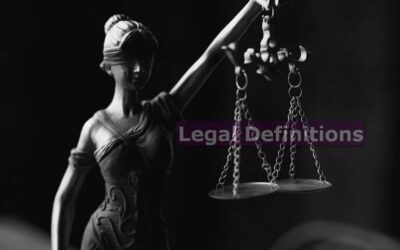Squatters
Squatting, in one definition is the unauthorized occupation of a property, can be a frustrating ordeal for property owners in Michigan. Understanding the relevant laws and procedures is crucial for regaining possession of your property.
Squatting vs. Adverse Possession: Key Differences
Michigan law differentiates between squatting and adverse possession. Squatting refers to the unlawful occupation of a property without the owner’s consent. In contrast, adverse possession allows someone who isn’t the legal owner to gain ownership rights under specific circumstances, as outlined in MCL § 600.5801. To establish adverse possession, an occupant must demonstrate:
- Continuous occupancy: Occupying the property for at least 15 consecutive years (MCL § 600.5801(1)).
- Color of title: Possessing a document, though potentially flawed, that suggests ownership (MCL § 600.5801(2)). However, simply paying rent or utilities doesn’t constitute color of title.
- Payment of property taxes: Paying property taxes for at least ten consecutive years (MCL § 600.5801(2)).
Open, notorious, and hostile possession: Occupying the property openly, demonstrably, and claiming it as their own, even if mistakenly (MCL § 600.5801(3, 4)).
The burden of proof lies with the squatter to establish adverse possession. Notably, Michigan courts have interpreted these requirements strictly, making it difficult for squatters to gain ownership rights.
News Articles and Information
MML-Michigan Communities and Squatting: What You Need to Know (PDF)
Here’s how homeowners can fight against squatter insanity
And now for something completely different…
Self-Help Eviction: A Unique Feature in Michigan
Michigan offers a unique remedy for property owners facing squatters: self-help eviction. Unlike most states, Michigan law allows owners to take specific steps to make the property unappealing for squatters, encouraging them to leave voluntarily.
Important Caveats: It’s crucial to note that self-help eviction has limitations:
No removal of belongings: Owners cannot remove the squatter’s belongings or physically force them out.
Tenant vs. squatter: This method only applies to squatters, not tenants with a valid lease agreement. Evicting tenants requires a formal eviction process through the court system.
Potential legal repercussions: Improper use of self-help measures could result in legal action from the squatter. Consulting an attorney before taking any steps is highly recommended.
Getting Rid of Squatters
If you discover that someone unauthorized is occupying your property, contact the police. However, be aware that the police may consider it a civil issue and advise you to pursue eviction through the courts. It is important to note that squatting is considered a misdemeanor in Michigan, even if law enforcement may not be fully aware of this fact.
Instead of waiting on or dealing with the police, property owners in Michigan can take action to remove illegal occupants within the limits of the law:
- Kindly request the squatter to vacate the premises within a specified timeframe.
- Notify the squatter that legal measures will be pursued if they fail to comply promptly.
- While the squatter is away from the property, consider changing the locks, securing entry points, boarding up windows, and implementing additional barriers like fences to prevent re-entry.
Gun buyback program – Michigan
There's another bounty to be claimed besides turning in your neighbor.Defined here in HB6144 can mean so many things... “firearm” means any weapon that will, is designed to, or may readily be converted to expel a projectile by action of an explosiveEntrepreneurs get...
Sextortion – Michigan
Sextortion - Extortion with an S.Michigan House Bills 5887 and 5888 make sextortion illegal in Michigan. The law defines sextortion as a threat to create or disseminate sexually explicit images or videos of another person to coerce them. The new law makes a first...
Criminal Trespass: Legal Ramifications of Squatting
Squatting in Michigan is considered criminal trespass under MCL 750.553. This statute classifies trespassing as a misdemeanor for first offenses, punishable by fines up to $5,000 or imprisonment for up to 180 days, or both. Subsequent offenses become felonies with steeper penalties.
There are additional trespassing classifications based on the property type:
- Residential property: Trespassing on a single-family or two-family dwelling is typically a misdemeanor.
- Commercial property: Trespassing on commercial buildings, industrial sites, construction zones, or utility property can be charged as a felony.
Property owners who suspect squatting should contact law enforcement. Officers can remove squatters if they lack a legal right to be on the property.
The Law
750.553 Occupancy of building without consent; violation; penalty; exception.
Sec. 553.
Other Articles
The 6th Amendment – Do You Know What It Is?
The 6th Amendment: is it still a thing?The 6th Amendment to the United States Constitution is a crucial pillar of the Bill of Rights, designed to ensure fair and just legal proceedings for individuals accused of crimes. Ratified on December 15, 1791, this amendment...
The US Supreme Court and Federal Gun Law Cases
The US Supreme Court and Federal Gun Law CasesChallenges to Federal Gun Laws the right of the people to keep and bear Arms, shall not be infringed Updated July 8, 2024 Ratified in 1791, the Second Amendment provides, “A well regulated Militia, being necessary to the...
Do Passengers in a Vehicle have 4th Amendment Rights?
Do Passengers have 4th Amendment Rights?Michigan Supreme Court Limits Police Ability to Search Passenger Property in CarsBackground Mead was a passenger in a car and had just met the driver, who offered him a ride. When the police stopped the vehicle and ordered both...
Do Students Have 4th Amendment Rights in Schools
Students and 4th Amendment RightsStudents are entitled to a right to be safe from unreasonable searches and seizures even within school premises, as ruled by the Supreme Court of the United States. However, these rights are somewhat limited for students, allowing...
More Posts
Cannabis – The Rise and Fall and Trail of Survivors Pile Up
Thieves make off with 1,000 pounds of premium flower in cannabis from a corporate grower in Michigan. Then, the GM sells off 650+ pounds to pay employees.The recent...
What is Recidivism in Legal Terms?
What does Recidivism mean?In legal contexts, recidivism refers to a person’s relapse into criminal behavior, often after having been previously convicted and penalized...
Your Past Charges Could Affect Decisions for New Charges
Michigan Court of Appeals - PEOPLE v. JAMES THOMAS MASON, JR.Jail vs ProbationIn People v. James Thomas Mason, Jr., the Michigan Court of Appeals dealt with whether the...
Can I be arrested for flying a drone in Michigan?
Someone asked us... Can I be arrested for flying a drone?As we have seen ... They can charge you and arrest you for whatever they want. But Can I Be Arrested or Fined...
If you have an LLC you must comply or face fines and possible prison
You work hard. Now get ready to work harder to prepare to give more.If you own or are a member of an LLC.You have a deadline of January 1, 2025Call us we can take care...
Compounding Charges Laws in Michigan
Understanding Compounding Charges Laws in Michigan Compounding charges refer to the illegal act of accepting or agreeing to accept a benefit in exchange for not...
Harris unveils new proposals targeting black men with cannabis legalization
"Harris unveils new proposals targeting Black men as she looks to shore up Democratic coalition" CNNAmid the ongoing national issues, Vice President Kamala Harris...
Cleary becomes latest US law firm to add non-equity partners
See you in the Home Depot lot.Oct 10, 2024 (Reuters) Cleary Gottlieb Steen & Hamilton will create a new category of non-equity partners, becoming the latest major...
What is the Difference Between a Magistrate and a Judge
What's the difference between a Magistrate and a Judge in Michigan?In Michigan’s court system, both magistrates and judges play important roles, but they have different...
Add on charges for your permanent record – Using a computer
The Use of Electronic Devices to Commit Crimes in Michigan Yes that means your cellphone... Computer" means any connected, directly interoperable or interactive device,...

























